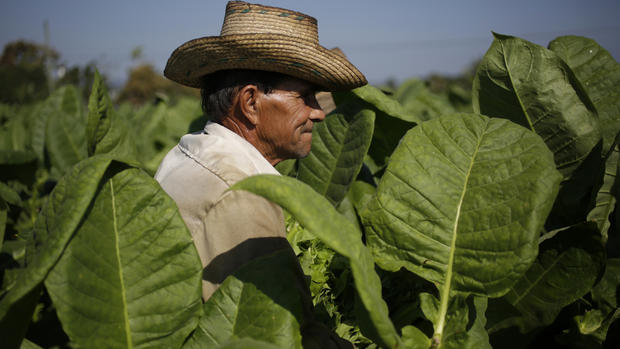U.S.-Cuba thaw in relations helped by Pope Francis, Vatican
VATICAN CITY -- The crucial role played by Pope Francis in bringing Cuba and the United States together signals that history's first Latin American pope has no qualms about putting the Holy See on the front lines of diplomacy, especially for a cause it has long championed.
The Vatican said Wednesday that Francis wrote to President Obama and Cuban President Raul Castro in recent months and invited them to resolve their differences over humanitarian issues, including prisoners.
Mr. Obama's announcement Wednesday that the U.S. would start normalizing its relations with Cuba came hours after the release of Alan Gross, a U.S. government subcontractor who had been held in a Cuban prison for five years.
In addition, the U.S. and Cuba executed a prisoner swap, a U.S. intelligence "asset" held by Havana in exchange for three Cuban intelligence officers held by the U.S., CBS News chief White House correspondent Major Garrett reports.
The Vatican hosted U.S. and Cuban delegations in October "and provided its good offices to facilitate a constructive dialogue on delicate matters, resulting in solutions acceptable to both parties," the Vatican said.
U.S. Ambassador to the Holy See, Kenneth Hackett, said in a statement to CBS News that a senior Vatican official had met with both sides "to help bring the negotiations to a successful conclusion." He didn't name the official.
In his announcement, Mr. Obama referred twice to Francis and thanked him for his involvement, saying his "moral example shows us the importance of pursuing the world as it should be, rather than simply settling for the world as it is."
Indeed, Francis has shown he is willing to use his popularity and moral authority to do the unthinkable for a good cause. This past June he invited the Israeli and Palestinian presidents for a day of peace prayers at the Vatican, and before that agreed to requests to help facilitate talks between the Venezuelan government and opponents.
Such Holy See interventionism harks back to the papacy of St. John Paul II, who is credited with having helped bring down communism in his native Poland by encouraging the Solidarity movement.
John Paul in 1978 also sent an envoy to help Francis' native Argentina and Chile reach a compromise on a territorial dispute. The two countries had been on the brink of war over the Beagle Channel and its islands.
The Vatican under Emeritus Pope Benedict XVI kept a low diplomatic profile, but during his 2012 visit to Cuba, Benedict made clear the Vatican's long-standing position that it believed the U.S. embargo was unjust and only hurt the most vulnerable on the island.
"Cuba and the world need change, but this will occur only if each one is in a position to seek the truth and chooses the way of love, sowing reconciliation and fraternity," Benedict said. The remark built upon the famed call of John Paul who said in his groundbreaking 1998 visit that Cuba should "open itself up to the world, and may the world open itself up to Cuba."
Francis' top diplomat is Vatican Secretary of State Cardinal Pietro Parolin, until last year the Vatican's ambassador to Caracas. Given his experience in the Caribbean, Parolin's role in the U.S.-Cuba rapprochement was believed to have been crucial to the deal.
Elisabetta Pique, an Argentine journalist and author of the authoritative biography "Pope Francis, Life and Revolution," said Francis had long been concerned about the effects of the U.S.-Cuba estrangement, given his position as a prominent churchman in Latin America. He frequently stressed the need for cultural engagement and dialogue.
She said it was widely understood that Francis and Mr. Obama spoke about Cuba when they met March 27 at the Vatican.
"It's typical of the man to have the courage to intervene personally, trying to contribute to doing something concrete, as we saw him do with the Mideast (prayer summit), without being afraid to take the risk," she told The Associated Press.
